- July 28, 2024
Why Do Cats Cry at Night? 8 Vet-Reviewed Reasons
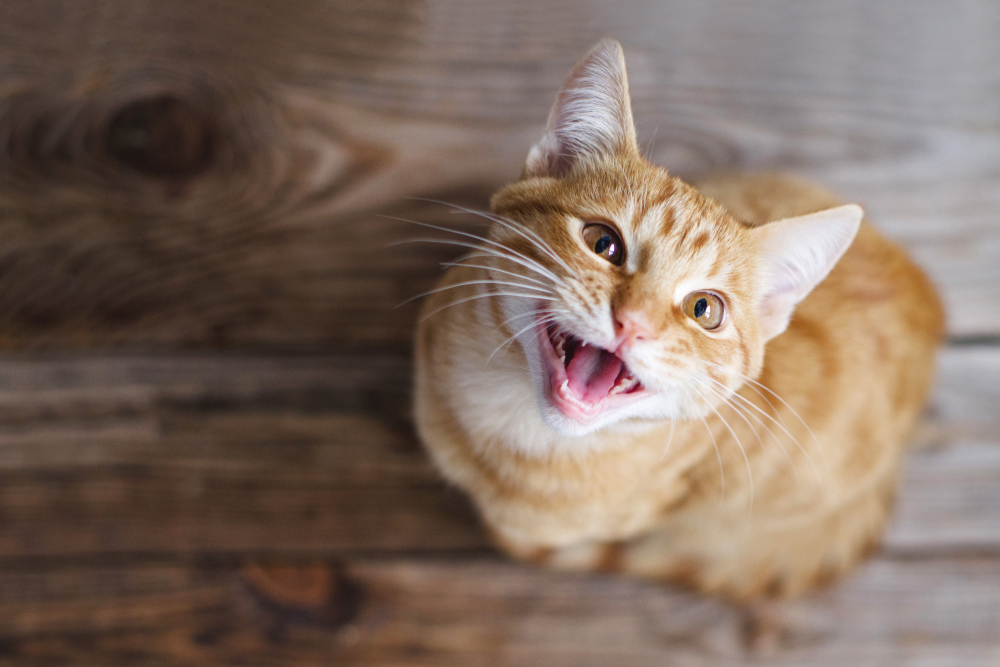
The information is current and up-to-date in accordance with the latest veterinarian research.
Our cats are creatures of the night, so it’s no wonder you hear them howling their song into the echoing chambers of the house when all are sleeping. With as much as you’re getting used to the sound of a banshee in your dwellings—you might wonder why it’s happening and how you can make it stop.
So, let’s explore why your feline might be constantly caterwauling at night. Remember, a vet appointment should be your first course of action if you notice any other unusual signs in your cat in addition to crying.

The 8 Possible Reasons for Cats Crying at Night
1. Hormones
Hormones influence, well, everything. They can influence your well-behaved cat to change into an unfamiliar one overnight. Once your kitty hits sexual maturity, their brains suddenly snap into mating mode, and nothing else seems to matter.
Why the increase of vocalization? Females usually use this method as a way to “cat call” male suitors when in heat. A male cat can hear and smell her up to a mile away, thanks to her powerful pheromones.
So, what other behaviors do they exhibit apart from crying and shouting? So many! It depends on if the cat is male or female. For example, females in heat will often become overly affectionate, rubbing, vocalizing, and maybe even exhibiting marking behavior.
Males can also spray—and they are usually the culprit. However, any cat can spray and getting them fixed won’t necessarily stop the issue. If you think your cat might be entering a heat cycle or reaching sexual maturity, it’s time to get them fixed.
Many cat owners face the problem of not getting their cats fixed in time and then dealing with the consequences of the delay. You might have to use enzymatic cleaners and other methods to clean up spray, and it can be really difficult to remove.
Our Favorite Enzyme Cleaner
The Hepper Advanced Bio-Enzyme Pet Stain & Odor Eliminator Spray is our favorite enzyme cleaner out there. It permanently removes even the very worst kitty stains and smells, leaving your home fresh and clean! Click here to learn more about this amazing product and get yourself a bottle.
Hepper Advanced Bio-Enzyme Pet Stain & Odor Eliminator Spray
- ADVANCED ENZYMATIC CLEANER – Penetrates the most stubborn smells and stains at the deepest molecular…
- FOR ANY MESS, ON ANY SURFACE – This pet odor eliminator cleans your carpets, floors, furniture,…
- FRESH, NATURAL ODOR – Our unique formulation doesn’t rely on dangerous or unpleasant chemical…
At Catster, we’ve admired Hepper for many years, and decided to take a controlling ownership interest so that we could benefit from the outstanding products of this cool cat company!
2. Boredom
We all know our cats have a big need to be entertained. A lot of times, if there’s not much going on in the environment, they will make something up. Unfortunately, that can include banging, crashing, and screeching around the house while the world tries to sleep.
It’s especially important for indoor cats to make sure their home environment is interesting and stimulating for them. Encourage activity and play during the day, but if you still think your pal needs help filling their time at night, you can try to offer some quiet but interactive toys.
Looking for toys that cater to the many needs of your cat? The Hepper Hi-lo Cat Scratcher is one of our favorite cat products. Its clever thee-angle design offers multiple ways for your cat to climb, stretch, and exercise. Made of a sturdy plywood base and a replacement cardboard insert, this scratcher is an option that can be enjoyed by cats for years to come. If your cat requires a little encouragement for self-play, the Hepper Plush Mouse Kicker is a fantastic choice. Equipped with bite and kick-resistant fabric, an enticing internal bell, and organic catnip, cats can satisfy their natural prey instincts while getting the physical activity they need to thrive.
At Catster, we’ve admired Hepper for many years, and decided to take a controlling ownership interest so that we could benefit from the outstanding designs of this cool cat company!
3. Separation Anxiety
Do you keep your door shut at night? If so, your cat might experience a little separation anxiety, which can be troubling and problematic. While separation anxiety is an issue that is talked a lot about in the canine community, it is often overlooked among feline companions. Changes in your cat’s routine can also cause stress and upset.
Some signs of separation anxiety and stress in cats may include:
- Excessive scratching of household items like furniture
- Excessive vocalization
- Elimination outside litter tray
- Eating less
Speak to your vet if your cat shows signs of being stressed or unhappy. They will rule out any medical issues and may recommend calming supplements and adjustments to their routine and environment. They might also refer you to a cat behaviorist in more extreme cases.
4. Prowling
Your cat might have a little mousey on the loose. If your cat has a high prey drive, they might use their natural instincts and sharp senses to hunt. Now, many homes don’t have mice—but those that live in the country or rural areas can attest to these little boogers intruding.
If you have a cat around, they will set out to find any pesky rodents that might be lurking around. If they smell a mouse but can’t find it, it also might cause an increase in vocalization due to frustration.
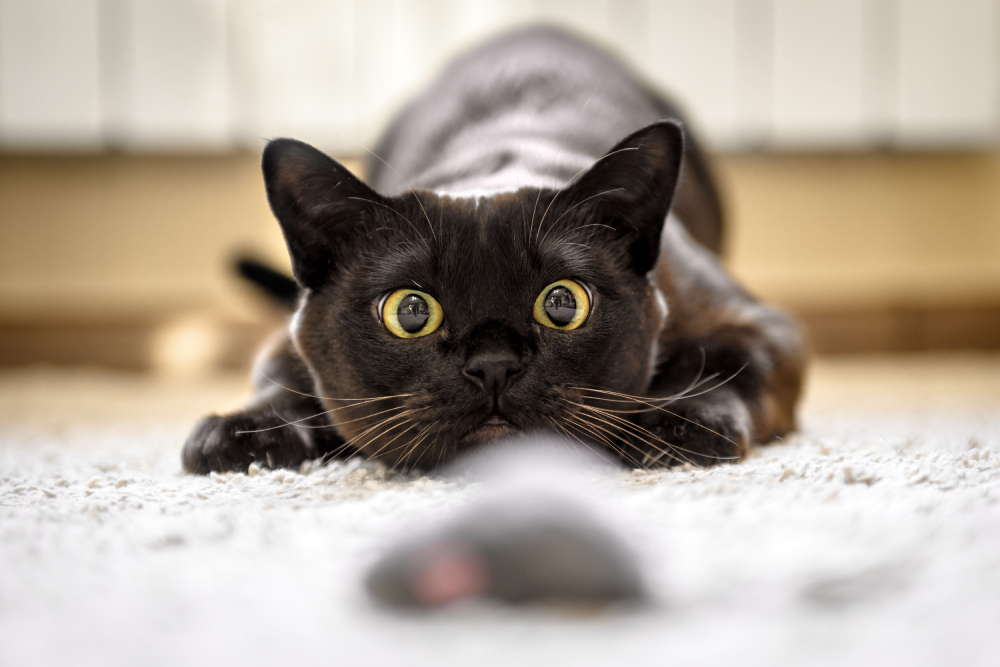
5. Hunger
Why do you choose to starve your cat? How dare you refuse to fill the food bowl to its brim before leaving them up all night, famished? We’re just kidding, but if your cat is feeling a little empty in the tummy, it might be a good idea to feed them closer to bedtime, if it doesn’t interfere with their schedule too much.
Sometimes, you can leave a food bowl out on a rotating basis and a lot of cats can manage themselves. Others will wreak havoc on the whole food bowl in one sitting. So, it can be difficult to keep a voracious eater happy!
You can always offer other bedtime snacks, like a bowl of broth or a lickable snack to keep them busy.
6. Age-Related Confusion
Our cats decline as they age in all regards. The once spry, bright-eyed little cat wanes into a slower, more sunken version of themselves as their bodies give way to age. With the natural bodily changes that occur, their cognitive abilities can take a hit also.
Much like dementia and Alzheimer’s in people, cats can develop a much similar issue called cognitive dysfunction syndrome (CDS.) This is the equivalent to feline dementia, usually due to a buildup of beta amyloid in the brain, which causes death and loss of brain neurons.
It can affect them in many different facets of their life—from staring aimlessly into space to crying at night. In addition to forgetting basic concepts, it can trigger a whirlwind of other signs.
Some other signs can include:
- Acting disoriented
- Changes in personality
- Forgetting to eat or drink
- Going to the bathroom outside of the litter box
- Poor grooming habits
- Sleep cycle changes
- Staring into space
Your cat doesn’t necessarily have to have CDS to exhibit signs. It can also mimic other things, some of which are time-sensitive. Some other issues that cause confusion in older cats can be health conditions like chronic kidney disease and deafness.
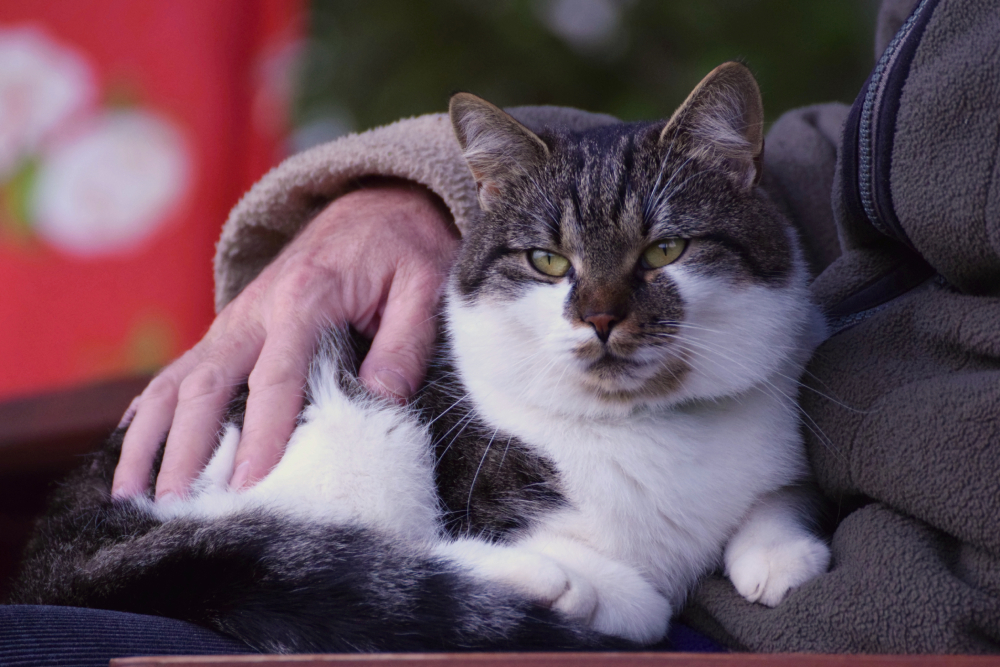
7. Other Health Issues
Age doesn’t necessarily have to be the primary factor to consider for a health issue. Even kittens can develop or are born with conditions that can cause signs as they grow. Only a vet can truly determine if a health issue is the underlying cause for your cat screaming.
Your vet will do a full physical exam and may run a series of bloodwork, urine samples, and even imaging if they suspect a problem. Here are some of the most frequently associated health issues with meowing at night.
You might notice many of the same signs in each category, which is why it is so imperative to get a proper diagnosis!
Hyperthyroidism is caused by one or both of the thyroid glands becoming enlarged and overactive. This leads to an increase in the production of thyroid hormones, which are responsible for regulating many body processes.
If your cat has an overactive thyroid, they will likely begin displaying lots of signs—although it might be more difficult to detect at first.
Some signs of hyperthyroidism include:
- Weight loss
- Increased appetite
- Increased thirst
- Increased activity, restlessness or irritability
- Poor coat quality
If your vet thinks your cat might be hyperthyroid, they will run blood tests to check their hormone levels. If your cat has the issue, there are a number of treatment options available including medical management and surgical removal of the affected thyroid tissue.
Kidney disease is a serious health condition that can threaten your buddy’s life when untreated. While kidney disease can develop at any age, it is more common among the older cat population.
Chronic kidney disease, or CKD, is a common problem of older cats. It happens when the kidneys slowly stop working over a period of months to years. The waste products that the kidneys normally remove build up in the bloodstream.
Signs for CKD in cats include:
- Drinking more
- Urinating more
- Eating less
- Weight loss
- Vomiting
- Poor coat
While there is no cure for CKD, there are ways that your vet can manage the condition, reduce the signs, and slow the progression of the disease. It is vital to your cat’s wellbeing to get diagnosis and treatment as quickly as possible.
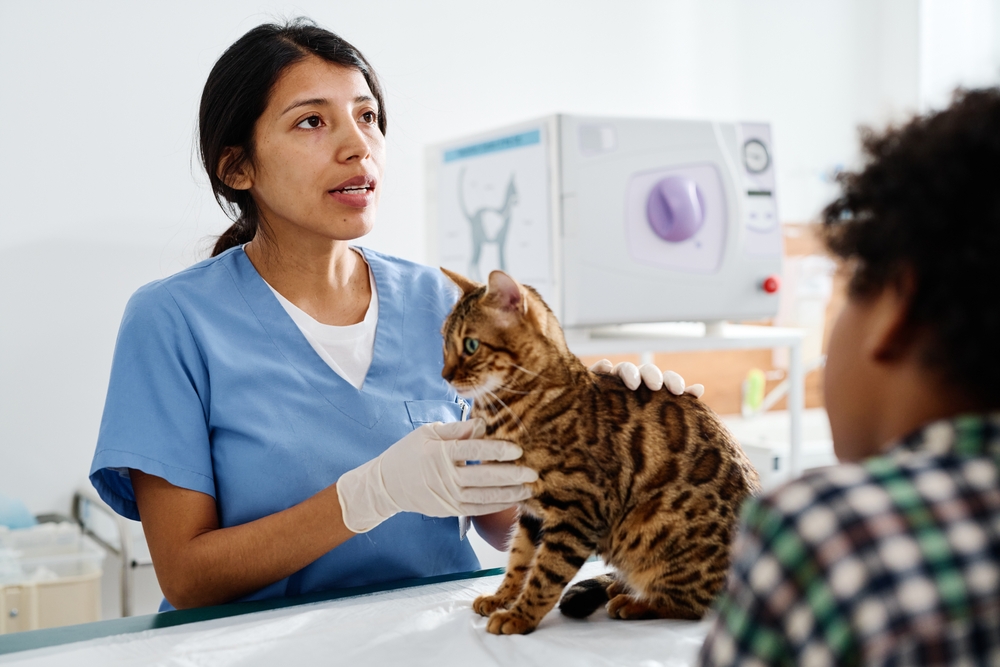
If you have a touch of arthritis, or know someone who does, you probably know just how painful it can be, and it’s the same for our cats. Often, signs might exacerbate at night once your cat is mobile. Osteoarthritis can develop in cats of any age, but mainly the senior population suffers.
It is not always known what has caused arthritis but mechanical wear and tear in the joints plays a part, and it can also develop secondary to a joint injury or abnormality.
Cats are very good at hiding the signs of pain and discomfort, but signs of arthritis may include:
- Difficulty getting up or jumping onto surfaces
- Going to the bathroom out of the litter box
- Hiding
- Lameness
- Reduced activity
- Reduced grooming, poor coat
- Temperament changes e.g. more irritable
If your cat has arthritis, it will need to be treated with medications. Environmental modifications and diet changes or supplements can also help.
8. Pain
Pain can come from many different sources apart from arthritis. Some can be noticeable, like an obvious breakage, skin abrasion, or wound. Others are more difficult to detect, like dental disease or abscesses.
If you think your cat is crying at night or any other time due to pain, it is important to make an appointment with your vet.

How to Help Your Cat at Night
Ways to help your cat will depend greatly on the underlying issue. If there is a health concern, veterinary assessment and treatment is essential. If it is as simple as hunger or feeling bored, you can offer them snacks and entertainment to keep them busy.
If your cat has a health condition (with the exception of separation anxiety), you might want to confine them into a single space at night for safety and comfort, speak to your vet for advice about whether this is the right option for your feline. Make sure the litter box is easy to access and food is in the bowl—in case they get too hungry!
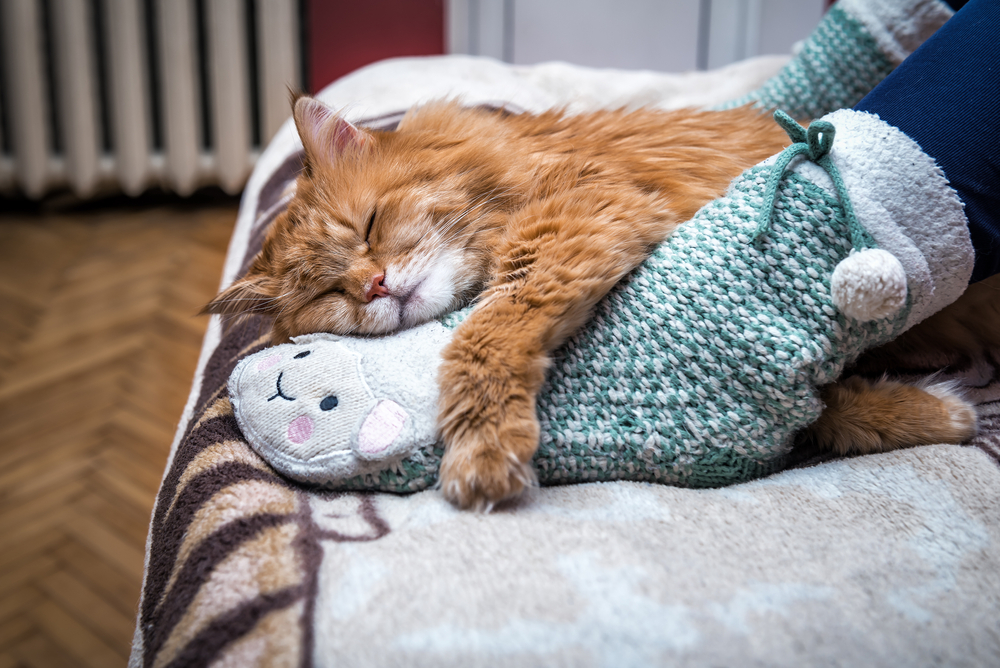
When to Call the Vet
Call your vet anytime you think your cat might have something going on that you can’t deal with at home. It’s always best to be safe than put off an issue that requires treatment. Advice and treatment will depend on what your vet determines is the underlying reason for your cat crying at night.

Conclusion
Hopefully, you have a firmer understanding about what could trigger your cat to cry at night. It might be different for every cat, but often the answer is quite simple. Don’t get too disheartened right away—and certainly voice any major concerns with your vet.
Featured Image Credit: savitskaya iryna, Shutterstock
Tags
What do you think?
Related Articles

New Puppy Checklist: Gear You’ll Need for Your New Dog
Getting a new puppy is really exciting, but before you welcome them home, it’s important to prepare your space for them. Since puppies need a

How Big Do Mini Poodles Get? Vet Reviewed Average Weight & Growth Chart – Dogster
The information is current and up-to-date in accordance with the latest veterinarian research. Learn more » When you buy a Miniature Poodle, you might not

Can Police Dogs Smell Nicotine? Vet Verified Facts & Info – Dogster
The information is current and up-to-date in accordance with the latest veterinarian research. Learn more » While cigarette sales have been declining steadily for decades,

How Old Is 5 in Dog Years? Vet-Approved Guide to Each Size of Dog – Dogster
The information is current and up-to-date in accordance with the latest veterinarian research. Learn more » A common method for calculating a dog’s age is


